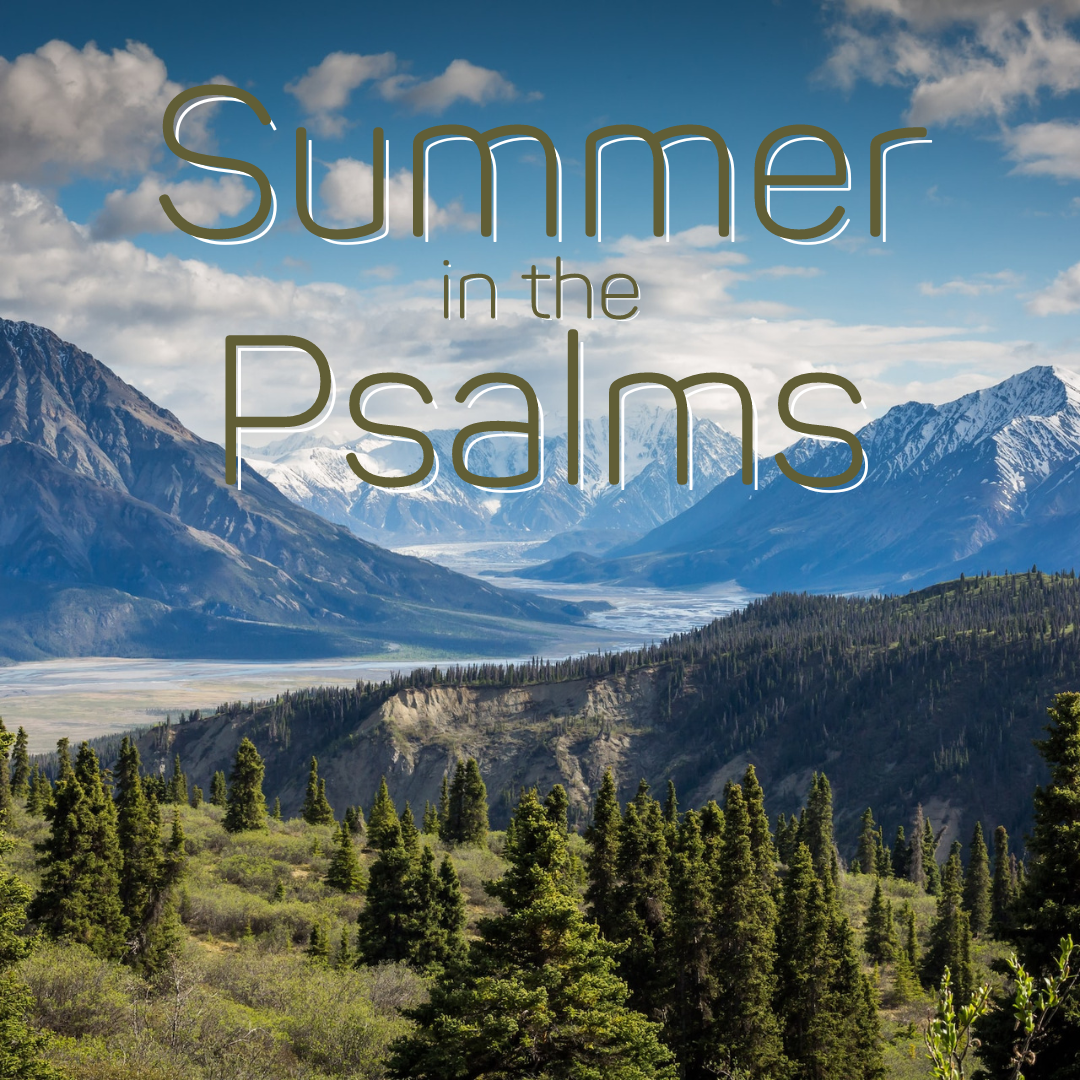By Pastor Stephen Hess –
Throughout the centuries, the Book of Psalms has been a place in Scripture to which Christians have continually turned for comfort and encouragement. One of the things that makes the Psalms so rich is that they reflect the full range of human emotions. The great church father Athanasius of Alexandria wrote, “Under all the circumstances of life, we shall find that these divine songs suit ourselves and meet our own souls’ need at every turn.” Because it is made up of songs, the Book of Psalms has sometimes been called “The hymnbook of the Bible.” Below are just a few types of songs that we find in the Psalter.
Psalms of praise – As songs that were originally written to be sung in the context of corporate worship, many of the psalms praise God for who he is and what he has done throughout history. As Psalm 145 says, “Every day I will bless you and praise your name forever and ever. Great is the LORD, and greatly to be praised, and his greatness is unsearchable” (145:2-3).
Psalms of thanksgiving – These songs focus on thanking God for what he has done in the past. Many of them celebrate times when God answered a prayer or provided for his people. Psalm 136 repeatedly calls the people to “Give thanks to the Lord, for he is good, for his steadfast love endures forever.” Psalm 138 says, “I give you thanks, O Lord, with my whole heart; before the gods I sing your praise; I bow down toward your holy temple and give thanks to your name for your steadfast love and your faithfulness, for you have exalted above all things your name and your word” (138:1-2).
 Psalms of lament – God’s people do not just sing songs in times of joy but also in times of sadness. The Psalms of lament are a reminder that it is appropriate to cry out to God when we are in pain. As we do this, we call upon him for help and choose to trust him even when life doesn’t make sense. In Psalm 13 David asks the question: “How long, O LORD? Will you forget me forever? How long will you hide your face from me? How long must I take counsel in my soul and have sorrow in my heart all the day?” (13:1-2). After calling upon the Lord for help David says, “But I have trusted in your steadfast love; my heart shall rejoice in your salvation” (13:5).
Psalms of lament – God’s people do not just sing songs in times of joy but also in times of sadness. The Psalms of lament are a reminder that it is appropriate to cry out to God when we are in pain. As we do this, we call upon him for help and choose to trust him even when life doesn’t make sense. In Psalm 13 David asks the question: “How long, O LORD? Will you forget me forever? How long will you hide your face from me? How long must I take counsel in my soul and have sorrow in my heart all the day?” (13:1-2). After calling upon the Lord for help David says, “But I have trusted in your steadfast love; my heart shall rejoice in your salvation” (13:5).
Psalms of confidence – Many of the Psalms speak about trusting God through the many circumstances of life. These Psalms express a confidence that God is faithful and that he will deliver his people. Psalm 16 says, “I have set the Lord always before me; because he is at my right hand, I shall not be shaken” (16:8). Psalm 23 says, “Even though I walk through the valley of the shadow of death, I will fear no evil, for you are with me” (23:4). Psalm 91 says, “He who dwells in the shelter of the Most High will abide in the shadow of the Almighty” (91:1).
Psalms of wisdom – These songs contain themes that overlap with other wisdom books such as Proverbs, Job, and Ecclesiastes. They often give practical advice and contrast righteousness with wickedness. As Psalm 1 says, “Blessed is the man who walks not in the counsel of the wicked, nor stands in the way of sinners, nor sits in the seat of scoffers; but his delight is in the law of the Lord, and on his law he meditates day and night” (1:1-2).
There are many other types of songs that we find in the Book of Psalms. What I hope you can see from this small sampling is that this book is full of spiritual riches. That is why this summer we are going to embark on a sermon series through the Psalms. Each Sunday during worship, we will examine a different Psalm and explore its meaning for our lives. My hope is that wherever you are in your spiritual journey, this summer series through the Psalms will speak to your heart and minister to your soul as we meditate on the great songs of Scripture.

